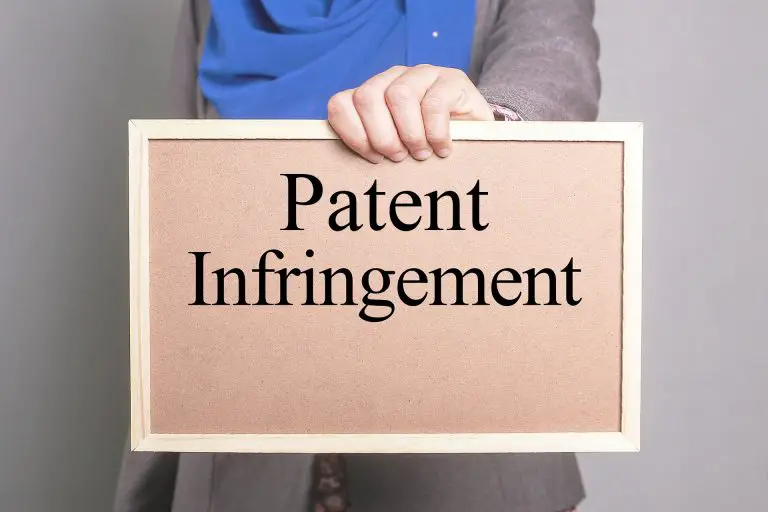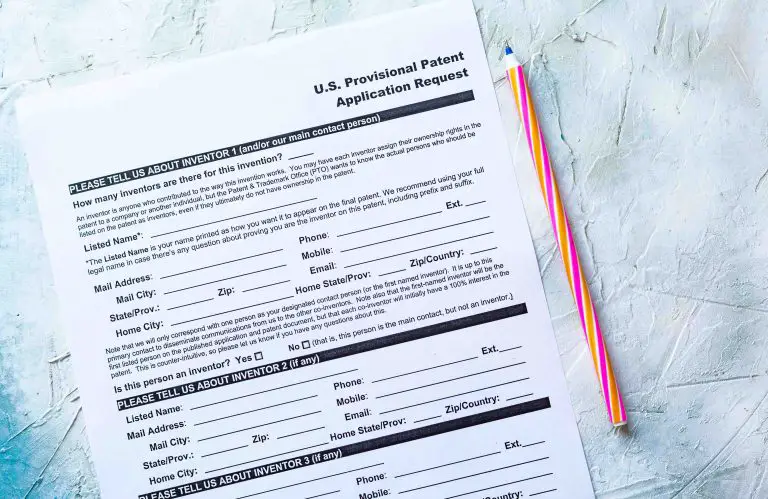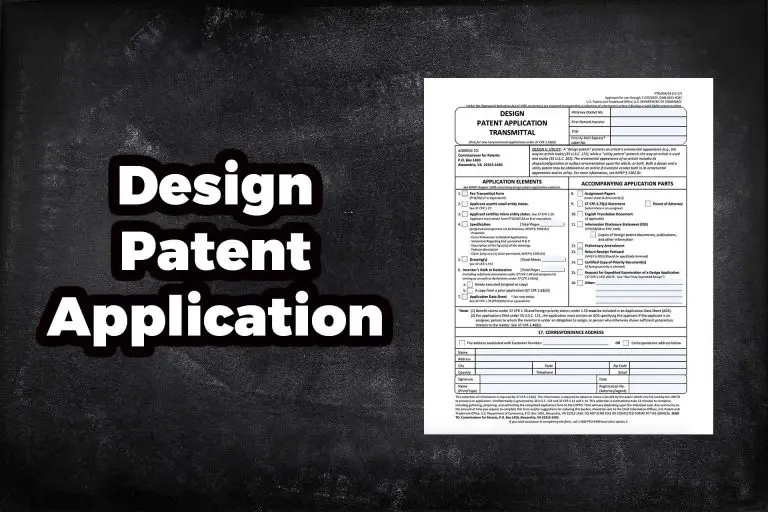Why Are Patents Important? (ANSWERED)
Getting a patent isn’t easy and it’s also expensive, so why do so many people patent their inventions and processes? This article will discuss the importance of patents, their benefits, their advantages and disadvantages, as well as the pros and cons of patents.
Patents are important for a variety of reasons that we will discuss below, but before we do that lets explain what is a patent? A patent is an exclusive right to use an invention or process that is granted by the Government to an inventor. Patents allow the inventor to exclude others from making, using, or selling their invention in the country where the patent was issued.
Patents are usually issued to actual persons and not to companies, but it’s pretty common to find inventors assigning (transferring) their interest in their patent to their employer.
Patents typically protect inventions, products, processes, or designs that meet certain requirements of novelty and utility. Modernly, patents in the United States last for 20 years from the filing date of the patent. In the U.S, patent applications are filed at the USPTO (United States Patent & Trademark Office).
Why Are Patents Important? (Advantages of Patents)
Patents are important because they help protect your invention by giving you the exclusive right to stop others from copying, manufacturing, selling, or importing your invention without your permission.
Patents are beneficial in many other ways, here are a few more reasons why patenting your invention or process is important:
- Protection. Patents give you the ability to protect your invention starting from the issue date of your patent. No one can manufacture, sell, or import your patented invention without first getting your consent to do so
- Exclusivity. Patents allow you to use your patented invention or process and to profit from it exclusively on your own for 20 years from the date you filed for your patent
- Priority. Being the first to patent an invention gives the patentee superior rights over subsequent patents. Therefore, if you’re someone who’s seeking capital for an idea, it’s smart to patent your invention before disclosing the idea to potential investors and licensees to keep them from stealing your patent idea and patenting it before you even get a chance. If you’re the first to patent the idea, you will be the sole owner of that patent
- Profit. Patents allow you to license your patents for other to use for an agreed up royalty or fee. This is a huge advantage for people who wants to license or sell their patent rights to companies or individuals for a profit. Charging a royalty for the use of your patent (lets say 5%) can be a better options for inventors who do not have the resources and expenses to bring the idea or patented invention to market themselves
- Innovation. Patents encourage innovation because people want to make money and what better way to do so than inventing something, protecting the invention, and later using it to earn some money. If people believe that their inventions would not be protected, they might not invent in the first place
- Limit the Competition. Patenting your idea or design helps businesses limit competition. Just imagine yourself patenting an invention that is sold by both you can your competitor. By patenting the product, you will gain the right to ask your competitor to cease the production and sale of their competing product thereby garnering a larger market share by weeding out your competition
- Investors. Having a patent or portfolio of patents is extremely valuable for small businesses especially when you consider that potential investors may invest in your company simply for the rights to use a particular patent or set of patents
- Credibility. Having patents provides increased credibility to both the inventor and their company
Disadvantages of Patents (Cons of Patents)
Patents can be very beneficial, however here are some of the disadvantages and cons of applying for a patent:
- Disclosing Information. By filing your patent application, you’re making specific technical information about your patent publicly available. Keeping some details about your invention secret may be beneficial to stay ahead of your competitors because competitors may look for a way to invent around your patent
- Time Consuming. Applying for and getting a patent is a very time consuming and lengthy process that often takes anywhere between 2 to 4 years for the government to grant/issue your patent. In our fast-paced world, waiting around for 4 years is a lot of time
- Costly. It can be quite costly whether your patent is successful or not. You’ll have to pay applications fees, searches for existing patents, and attorney’s fees which contribute to quite the hefty bill. So even if your patent is unsuccessful, you could be left with bills that range from $2,000 to $5,000 depending on the complexity of your patent, the more complex the invention, the greater the cost
- Complex. One of the arguments that we’ve heard time and time against is that the process of patenting an item is complex and usually requires the help of an attorney
- Maintenance Fees. You need to pay periodic maintenance fees the last throughout the life of your patent. There are maintenance fees that must be paid three times throughout the life of your patent. If you fail to pay these fees, you might lose your rights and protections under US Patent law
- Enforcement. Once you’ve filed your patent and your patent issues, you can’t just sit back and expect the USPTO (Patent Office) to keep all those infringing upon your patent from selling your product, you’re going to have proactively monitor the market, look for people infringing on your patent, and find an attorney who will deal with the person infringing upon your patent. Having an attorney take legal action against an infringer is an expensive process
- Limited Protection. Patents are only good for the country in which they were issued. For example, if you received a patent for invention X in the U.S and someone in China copies your invention, you’re out of luck because your patent is only good in the United States. If you have an invention that you want to protect worldwide, you’ll have to patent your invention or idea in each country to gain patent protection
- Lawsuits. If an inventor tries to patent his idea, competitors may file lawsuits in order to invalidate your patent, this is especially true if they believe that your patent can benefit them
All that we ask is that you weight the advantages and disadvantages of patents carefully before you decide that you want to patent your idea or invention. Making an informed decision will save you money, time, and heart ache in the long run.
Types of Patents
The two main types of patents that are issued by the USPTO (United States Patent and Trademark Office) are utility patents and design patents.
Type #1: Utility Patent
The U.S Code defines utility patents as “any news and useful process, machine, manufacture, or composition of matter, or any new and useful improvement thereof.” Basically what this means is that utility patents protect new machines, systems, and other useful inventions.
Utility patents are among the most valuable forms of intellectual property that a person can hold, but the problem is that they’re costly. Depending on the complexity of your invention, patent cost can be huge for most people. Simple inventions can cost a few thousand dollars while more complex inventions can easily send the cost skyrocketing into the tends of thousands of dollars.
Utility Patent Summary
- Protect how an invention operates or works
- Lasts 20 years from the date you filed your patent
- Covers thing like: a process, machine, manufacture, improvement of an existing invention
- Most commonly issued patent by the USPTO (Approximately 90% of patents are utility patents)
- Utility patents must serve a practical purpose or use
Type #2: Design Patent
According to the U.S Code, a design patent cover “any new, original and ornamental design for an article of manufacture may obtain a patent therefore.” This means that design patents protect the ornamental design of a functional item. This covers things like the design of jewelry, Coca Cola Bottle, furniture, and computer icons.
Having a design patent over an ornamental item gives the patentee (patent holder) the power to exclude others from using a design that is substantially similar to their patented design.
Design Patents Summary
- Utility patents protect an item’s visual aesthetic or look (something that’s purely decorative)
- The design must original to an ornament or product
- Last up to 20 years from your patent filing date
- They cannot be renewed once they expire
- Design patents can be used if the design has been published or sold before the person or company applied for the patent
Pros and Cons of Patents
Inventors must weigh the pros and cons of patents before submitting a patent application. We listed the pros and cons of patenting your invention in this post in the paragraphs above. One of the biggest drawbacks of patenting your invention is the complex and costly patenting process. Many people who do not seek patents don’t do so because they don’t find support for those who are close to them, they can’t afford the high costs of patenting in the U.S, or they don’t fully understanding what a patent is.
Understanding the pros and cons of patenting your invention will help you make a more informed decision as to whether to patent your invention or not.
Alternatives to Patents
Some people do not wish to profit from their discoveries and inventions so instead of patenting their invention, some patentees (patent holders) either keep their invention secret or they simple publish it into the public domain.
Some seek to publish their patents because they want to contribute to society while others do it simply to avoid the fees associated with patenting their invention. Once an inventions is published, a subsequent inventor cannot patent the idea or invention any more because it’s public and it’s not new anymore.
The first obvious drawback of publicly publishing your invention is that you cannot patent it anymore. Also, once you’ve published it your competitors may patent improvements to your original patent, leaving you without a remedy.
So, if you’re someone who does not want competitors to use his invention, publishing your patent is the wrong way to go about things, keeping it a secret is your safest bet. That said, if you keep your invention a secret, you risk competitors developing the same invention and patenting it before you do, so that’s something just to keep in mind.
Are Patents Worth It?
Patents are worth it and are valuable for inventors who want to control how their invention is made, how it’s used, and to prevent anyone else from profiting from their idea.
That said, there are some disadvantages associated with patenting your idea or invention and we’ve listed them above. Some of the drawbacks of patenting an invention include cost, time, and the enforcement that comes along with your patent.
Without having a patent, you won’t have ownership or control over your invention. This means that you won’t be able to sell or license your intellectual property to anyone because you don’t have exclusive rights to it. Also, anyone who hears about your idea can imitate it and not having a patent over it makes things much easier.
Why Are Patents Important Conclusion
Patents are important for the variety of reasons that we mentioned throughout this article. We hope this article covered the advantages and disadvantages of patents as well as their pros and cons effectively. If you have any questions or comments about patents and their important, please feel free to leave them in the comments section below.









